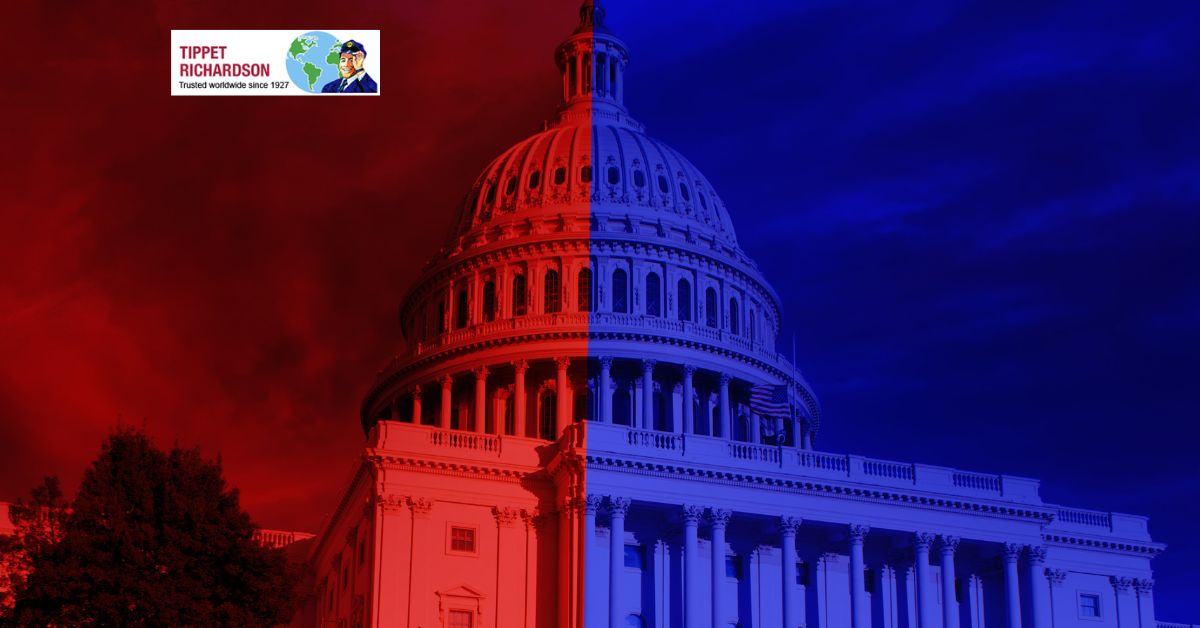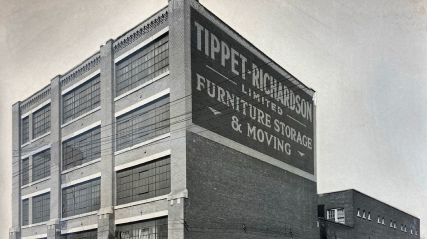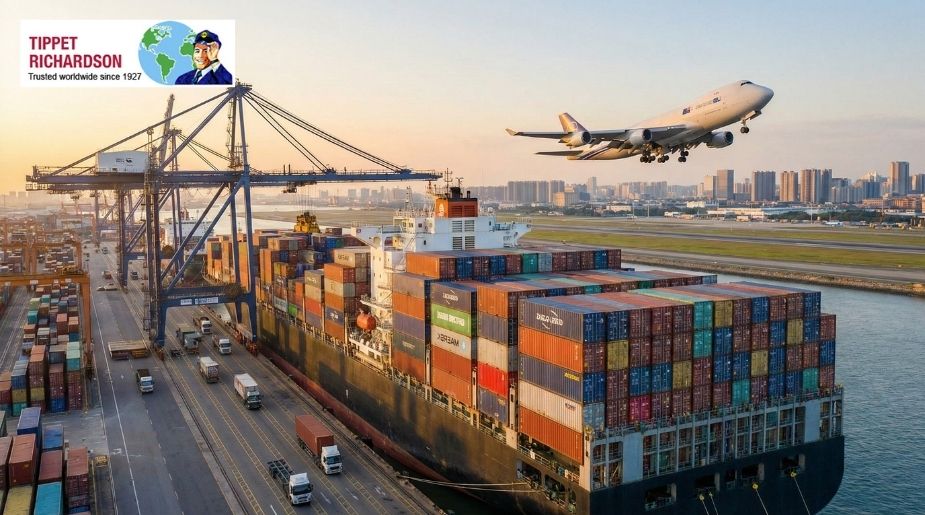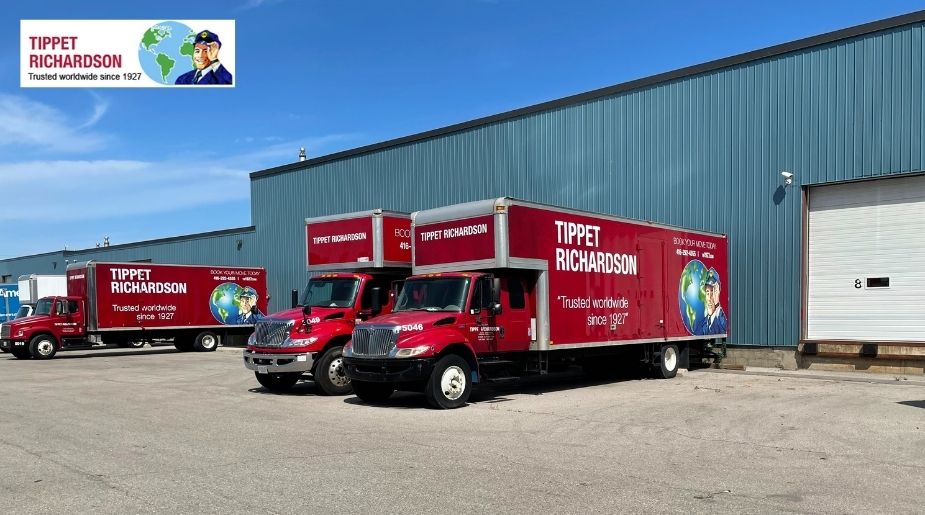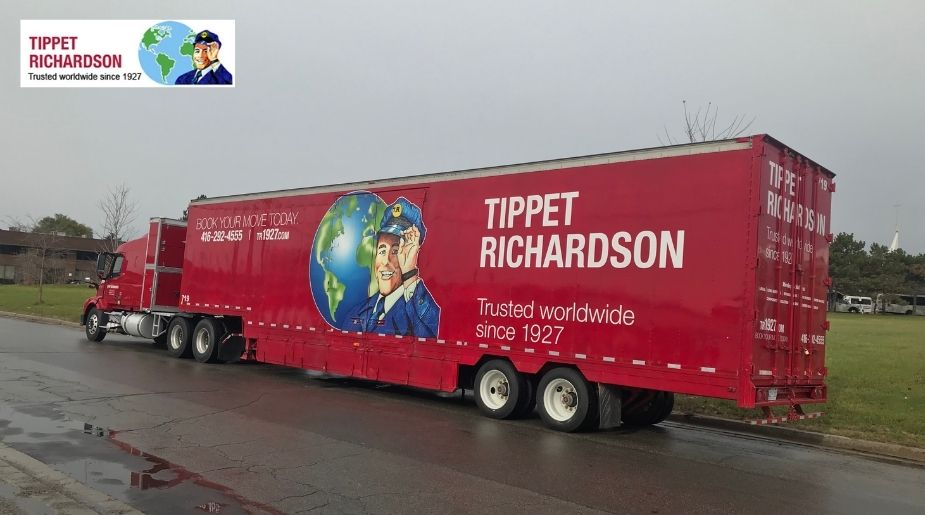Moving from Canada to the United States is an exciting adventure, but it comes with a variety of logistical and legal considerations. Whether you’re relocating for work, education, or personal reasons, the process involves far more than just packing your belongings and crossing the border. From visa applications to tax requirements, every step needs careful planning to ensure a smooth and stress-free transition.
For those moving from Toronto to Washington, D.C., the journey is more than just a geographical shift—it involves adapting to a new legal system, financial requirements, and lifestyle. Understanding these complexities in advance can help avoid unnecessary delays and complications. Working with an experienced moving company like Tippet Richardson ensures that the process remains stress-free, as professional movers can assist in customs procedures, transportation logistics, and any unforeseen challenges that may arise.
This guide explores all essential aspects of moving to America from Canada, including immigration requirements, tax considerations, and necessary preparations. Whether you are moving alone or with family, having a structured plan in place can make all the difference in ensuring a seamless transition.
Understanding the Process of Moving to America from Canada
The process of moving to America from Canada involves more than just relocating personal belongings. It requires a solid understanding of U.S. immigration laws, tax obligations, and financial adjustments. Without proper planning, individuals may face legal complications, unexpected costs, or difficulties settling into their new environment.
Immigration and Visa Requirements
Securing the right visa is one of the most crucial steps when moving to America from Canada. Unlike domestic moves, cross-border relocations require compliance with U.S. immigration laws, which vary depending on the purpose and duration of the stay.
Determining Your Eligibility for Entry
Not all Canadians require a visa to enter the United States. However, when moving permanently or for employment, specific visa categories must be considered. Each visa has unique requirements, and failing to secure the correct one can result in delays or legal issues.
For example, professionals seeking employment in the U.S. may qualify for a TN visa, which is available under the United States-Mexico-Canada Agreement (USMCA). This visa is restricted to specific professions such as engineers, accountants, and IT specialists. Those seeking broader employment opportunities might need an H-1B visa, which requires employer sponsorship and has an annual cap.
Individuals transferring within multinational companies may apply for an L-1 visa, which allows them to work in the U.S. for a designated period. For those looking for permanent residency, an employment-based Green Card is an option, though it involves a more complex and lengthy application process.
Preparing the Necessary Documentation
The documentation required for moving to America from Canada depends on the visa type. However, certain documents are universally required, including a valid passport, proof of financial stability, and immigration approval. Some visa categories also require an employment offer letter, medical examination records, and background checks.
Before making the move, it is essential to ensure that all paperwork is in order. Delays in processing or missing documents can lead to complications at the border. Consulting with an immigration expert can help navigate the complexities of the visa application process.
Understanding Work Authorization and Restrictions
Not all visas allow immediate employment in the U.S. Those relocating under a dependent visa, such as spouses of work visa holders, may need to apply for additional work authorization. Similarly, business owners and freelancers must ensure that their visa permits self-employment.
Since U.S. immigration laws frequently change, staying updated with current regulations is crucial. Misinterpretation of visa conditions can lead to violations that may result in deportation or legal consequences.
Navigating Tax Obligations
Understanding tax responsibilities is a critical component of moving to America from Canada. Both countries have distinct tax systems, and failing to comply with tax regulations can lead to financial penalties.
Determining Tax Residency Status
Tax residency is not solely determined by citizenship. The U.S. applies the Substantial Presence Test, which evaluates the number of days an individual spends in the country within a given year. Canadians who spend 183 days or more in the U.S. may be considered tax residents and are required to report their global income to the Internal Revenue Service (IRS).
To avoid double taxation, Canada and the U.S. have established a Tax Treaty, allowing individuals to claim Foreign Tax Credits. This helps prevent paying taxes on the same income in both countries. However, eligibility for exemptions depends on an individual’s tax filing status and earnings.
Filing Tax Returns in Canada and the U.S.
The transition year is often the most complex when moving to America from Canada, as individuals may need to file tax returns in both countries. Canadian citizens leaving the country must notify the Canada Revenue Agency (CRA) and may be subject to departure tax, which applies to certain investments and capital gains.
In the U.S., tax filings depend on visa type and employment status. Employees must ensure that their employer withholds the correct amount of income tax, while self-employed individuals may need to make quarterly tax payments. Consulting a tax expert ensures that all necessary filings are completed accurately.
Handling Investments and Retirement Accounts
Moving to America from Canada involves financial adjustments, including how assets and retirement accounts are managed. Registered Retirement Savings Plans (RRSPs) and Tax-Free Savings Accounts (TFSAs) are treated differently in the U.S. The IRS does not recognize TFSAs as tax-free, meaning any interest or dividends earned may be taxable.
Before relocating, it is advisable to determine whether to withdraw, transfer, or maintain Canadian investment accounts. Some Canadian banks offer cross-border financial services, making it easier to manage funds between the two countries. Individuals should also review the impact of their move on pension contributions and eligibility for benefits under the Canada-U.S. Social Security Agreement.
Opening a U.S. Bank Account and Credit Profile
Establishing a U.S. bank account is essential for managing expenses after moving to America from Canada. However, Canadian credit history does not automatically transfer to the U.S., making it necessary to build a new credit profile. Without a U.S. credit score, obtaining loans, renting an apartment, or even securing a mobile phone plan can be challenging.
One way to start building credit is by applying for a secured credit card, which allows individuals to establish a history of responsible borrowing. Some Canadian banks have partnerships with U.S. financial institutions, making it easier to transition existing accounts. Seeking financial guidance before moving can help avoid difficulties with banking and credit in the U.S.
Preparing for the Move: Essential Steps
Moving to America from Canada is not just about crossing the border—it requires careful planning, organization, and execution. A successful transition depends on making informed decisions regarding logistics, finances, and documentation. Every aspect of the move, from selecting a moving company to ensuring health coverage, plays a crucial role in making the relocation seamless.
Preparation starts months in advance, as certain tasks, such as sorting personal belongings, obtaining necessary permits, and securing accommodations, can take time. Those moving from Toronto to Washington, D.C., must also consider factors like weather conditions during transit, customs clearance procedures, and transportation options. The more structured and well-thought-out the plan, the easier the transition will be.
Selecting a Reputable Cross-Border Moving Company
Choosing a moving company experienced in cross-border relocations is essential when moving to America from Canada. Unlike a local move, a Cross-Border relocation involves customs regulations, detailed inventories, and proper documentation. Not all movers have expertise in handling these complexities, making it crucial to select a service provider with a proven track record.
Evaluating Experience and Credibility
A moving company that specializes in cross-border relocations understands the intricacies of U.S. and Canadian regulations. Checking credentials, years of experience, and customer reviews can provide insight into the reliability of a service provider. Companies like Tippet Richardson, with decades of expertise in facilitating cross-border moves, ensure a stress free experience.
Professional movers handle everything from packing and transportation to customs clearance, reducing the risk of delays or additional fees. Since moving to America from Canada requires compliance with strict import laws, working with a company well-versed in documentation requirements minimizes the chances of shipment rejections at the border.
Understanding Customs Clearance and Documentation
Crossing the U.S. border with household goods requires an accurate inventory list and completed customs paperwork. Without proper documentation, items may be delayed, confiscated, or subject to additional scrutiny. Ensuring that all required forms, such as U.S. Customs Form 3299 (Declaration for Free Entry of Unaccompanied Articles), are filled out correctly is essential.
Items shipped must be categorized properly to prevent customs complications. Some goods, including firearms, certain plants, and restricted food items, may not be allowed into the U.S. Verifying the import regulations in advance ensures that shipments meet compliance standards. Professional movers help streamline this process, ensuring all paperwork is in order before departure.
Organizing Personal Belongings and Household Items
Decluttering and categorizing belongings before moving to America from Canada simplifies the transition and reduces unnecessary shipping costs. Organizing items well in advance allows for a more efficient packing strategy and ensures that essential possessions are readily accessible upon arrival.
Sorting and Downsizing Possessions
Relocating Cross border provides an opportunity to assess which items are essential and which can be left behind. Selling, donating, or disposing of unnecessary belongings lightens the load and reduces transportation expenses. Since housing layouts and storage space in Washington, D.C., may differ from those in Toronto, planning according to available space helps prevent overcrowding in the new home.
Valuable items, such as important documents, electronics, and jewelry, should be packed separately for easy access. Essential paperwork, including passports, visas, and financial records, should be stored in a secure travel bag rather than packed with household goods.
Packing for Long-Distance Transport
Packing plays a vital role in protecting possessions during transit. Sturdy boxes, cushioning materials, and waterproof wrapping prevent damage, especially for fragile or high-value items. Labeling boxes by room and content type ensures an organized unpacking process once in the U.S.
For those using a professional moving company, understanding the difference between full-service packing and self-packing options helps in deciding the level of assistance required. Movers trained in handling Cross border shipments use specialized techniques to secure items for extended travel distances.
Securing Health Insurance Coverage
One of the most critical steps when moving to America from Canada is ensuring continuous health coverage. Unlike Canada’s universal healthcare system, the U.S. relies on private health insurance, making it necessary to enroll in a suitable plan before relocating.
Understanding U.S. Healthcare Differences
Canada’s healthcare system provides publicly funded medical services, but coverage does not extend to the U.S. Once in America, individuals must enroll in a private insurance plan to access medical care. Without proper coverage, medical expenses can be significantly higher than in Canada, making advance planning essential.
Employer-sponsored health insurance is a common option for those moving to the U.S. for work. However, not all employment contracts include healthcare benefits, requiring individuals to purchase plans independently. Researching insurance providers and comparing coverage options ensures adequate protection upon arrival.
Applying for a Suitable Health Insurance Plan
There are multiple ways to obtain health insurance after moving to America from Canada. Those eligible for employer-sponsored coverage should review policy details, including premiums, deductibles, and network providers. Self-employed individuals or those without employer coverage may need to explore private insurance marketplaces or government-subsidized plans.
Short-term health insurance may be an option for individuals transitioning between Canadian and U.S. coverage. These plans offer temporary protection until long-term insurance is secured. Since medical costs vary widely across the U.S., choosing a plan that aligns with personal healthcare needs ensures financial security in case of medical emergencies.
Planning Housing and Living Arrangements
Finding suitable housing before moving to America from Canada is a priority for a smooth transition. The real estate market in Washington, D.C., differs significantly from Toronto’s, requiring careful consideration of factors such as rental costs, neighborhood amenities, and commuting options.
Researching Housing Options in Washington, D.C.
The housing market in Washington, D.C., features a variety of options, including apartments, townhouses, and single-family homes. Rental prices can vary depending on how close a property is to the city center, access to public transportation, and overall neighborhood demand. Researching housing trends and carefully reviewing rental agreements are essential steps to make informed and confident decisions when moving to the area.
Those moving with families may need to consider school districts, safety ratings, and nearby healthcare facilities. Online resources, real estate agents, and relocation specialists can assist in finding housing that meets specific requirements.
Securing Accommodation Before Arrival
Signing a lease before moving ensures a stable living arrangement upon arrival. For those unfamiliar with Washington, D.C., temporary accommodations such as extended-stay hotels or short-term rentals can provide a comfortable transition period.
Proof of income, credit history, and references are often required when renting in the U.S. Since Canadian credit scores do not automatically transfer, preparing alternative proof of financial stability, such as bank statements or employment contracts, helps in securing a lease agreement.
Setting Up Utilities and Essential Services
Before settling in, setting up basic utilities, including electricity, water, and internet services, is necessary. Unlike Canada, where utility companies may offer bundled packages, U.S. providers operate independently, requiring separate service arrangements.
Transferring or Establishing New Utility Accounts
For those renting, some landlords include utilities in rental agreements, while others require tenants to set up accounts. Understanding the provider requirements in Washington, D.C., ensures timely activation of essential services.
Mobile phone plans, internet subscriptions, and cable television services should be arranged before moving. Some Canadian mobile carriers offer cross-border plans, but switching to a U.S. provider may offer better coverage and pricing.
Settling into Washington, D.C.: Tips for a Smooth Transition
Moving to America from Canada is a major life change that extends beyond logistics and transportation. Once the physical move is complete, adjusting to a new city, legal system, and lifestyle becomes the next challenge. For those relocating from Toronto to Washington, D.C., differences in culture, healthcare, banking, and daily life require careful navigation.
Washington, D.C. offers unique opportunities, but settling in requires preparation and adaptation. Understanding how to integrate into the local community, establish financial stability, and access essential services can help newcomers feel more comfortable in their new home. A well-planned transition makes moving to America from Canada less overwhelming and ensures a positive experience.
Understanding the Local Culture and Community
Washington, D.C. is a politically driven city with a diverse population and vibrant cultural scene. Unlike Toronto, where multiculturalism is deeply embedded in daily life, D.C. has a fast-paced environment influenced by government, diplomacy, and international affairs.
Adjusting to Social and Professional Norms
Networking plays a significant role in career advancement in Washington, D.C. Professionals moving to America from Canada should be prepared for a workplace culture that values ambition, connections, and direct communication. Unlike Canada’s more relaxed work environment, business interactions in the U.S. tend to be highly goal-oriented and competitive.
Socially, D.C. offers a mix of formal and casual settings. While the city is known for its political and corporate culture, it also has a thriving arts, music, and sports scene. Engaging in community activities, attending local events, and exploring cultural institutions help new residents integrate into the local lifestyle.
Finding Canadian Communities and Support Networks
Settling in becomes easier when connecting with fellow Canadians who have already gone through the process of moving to America from Canada. Several expatriate groups, professional associations, and community organizations cater to Canadians living in Washington, D.C. These networks provide valuable insights into local regulations, employment opportunities, and social events.
Attending meetups, joining online forums, and participating in networking events can help build connections and ease the transition. Canadian expat groups often organize gatherings to celebrate holidays such as Canada Day, offering a familiar sense of home in a new country.
Navigating the U.S. Healthcare System
Healthcare in the U.S. operates differently from Canada’s public healthcare model. Unlike in Toronto, where most medical services are covered by provincial insurance, Americans rely on private health plans. Those moving to America from Canada must secure comprehensive health coverage to avoid high medical costs.
Registering with a Primary Healthcare Provider
Finding a doctor in the U.S. requires selecting a healthcare provider within an insurance network. Unlike in Canada, where patients can visit any hospital covered by their provincial plan, Americans must choose medical professionals who accept their specific insurance policy. Researching available healthcare providers and registering with a primary care physician as soon as possible ensures access to medical services when needed.
Understanding Medical Costs and Insurance Coverage
Medical expenses in the U.S. vary based on insurance plans. Copayments, deductibles, and out-of-pocket costs differ from Canada’s system, where most healthcare services are publicly funded. Reviewing insurance policies, understanding coverage limitations, and being aware of emergency medical costs prevent unexpected financial burdens.
Employers often provide health benefits, but independent insurance options are available through private providers or government marketplaces. Those moving to America from Canada without employer-sponsored insurance must explore plans that cover doctor visits, prescriptions, and hospital care.
Establishing Financial Accounts and Credit
Financial stability is essential when transitioning to life in Washington, D.C. Moving to America from Canada involves adjustments to banking systems, credit history, and tax obligations. Opening a U.S. bank account, building a local credit profile, and understanding tax requirements ensure a smooth financial transition.
Opening a U.S. Bank Account
Canadian bank accounts may not be practical for daily expenses in the U.S. Opening a local bank account simplifies financial transactions, including paying rent, utilities, and other bills. Some Canadian banks have partnerships with U.S. institutions, allowing for seamless transfers between accounts.
Setting up direct deposit for salary payments and linking accounts for automated bill payments ensures financial stability. Many U.S. banks require proof of address, Social Security Number, or Individual Taxpayer Identification Number (ITIN) to open an account, making it important to prepare the necessary documents in advance.
Building Credit in the U.S.
Canadian credit history does not automatically transfer to the U.S., making it necessary to establish a new credit profile. Moving to America from Canada means starting from scratch in terms of creditworthiness, which can impact the ability to rent an apartment, apply for loans, or obtain a credit card.
Applying for a secured credit card or seeking credit-building loans are effective ways to start building a U.S. credit score. Some financial institutions offer credit transfer programs for Canadians with existing credit history, helping to establish a foundation for future financial transactions.
Common Challenges and How to Overcome Them
Moving to America from Canada presents several challenges, from legal and financial hurdles to cultural adjustments. Being aware of these potential difficulties and preparing solutions in advance can make the transition easier. Adapting to a new environment takes time, but with the right strategies, Canadians can overcome these challenges and thrive in their new home.
Adapting to Different Legal and Social Systems
Legal systems and social structures in the U.S. differ from those in Canada. While both countries share similar democratic values, there are distinct differences in laws, policies, and societal norms that impact daily life.
Understanding Legal Differences
Traffic laws, tenancy agreements, employment contracts, and taxation policies in the U.S. operate under different regulations than in Canada. Researching legal requirements before moving to America from Canada prevents misunderstandings and potential legal issues. Certain laws, such as firearm regulations, healthcare mandates, and tax codes, vary from state to state, making it essential to understand local policies.
Adjusting to Cultural and Social Differences
Cultural norms in the U.S. may feel unfamiliar at first. Social interactions, business etiquette, and customer service standards often differ from those in Canada. While Canadians are known for their politeness and reserved nature, Americans tend to be more direct in communication and service-oriented in professional settings.
Adapting to these differences requires open-mindedness and willingness to engage with new experiences. Observing local customs, asking questions, and immersing in the community help in understanding social expectations and integrating smoothly.
Managing Emotional and Psychological Aspects of Relocation
Relocating to a new country brings emotional and psychological adjustments. Moving to America from Canada means leaving behind familiar environments, friends, and family, which can result in homesickness and feelings of isolation.
Coping with Homesickness and Loneliness
Homesickness is common during the early stages of relocation. Staying connected with loved ones through video calls, social media, and visits back to Canada can ease emotional transitions. Establishing new friendships and engaging in community activities also helps in creating a support network in Washington, D.C.
Maintaining Mental Well-Being
The stress of adjusting to a new environment can impact mental health. Prioritizing self-care, engaging in recreational activities, and seeking professional support if needed ensures a positive transition experience. Washington, D.C. offers various wellness programs, social groups, and therapy services that provide support for newcomers adapting to life in the U.S.
Read Also: A Complete Guide to Specialty Item International Moving
Wrapping Up
Moving from Canada to the United States is a life-changing experience that requires careful planning, preparation, and flexibility. Relocating from Toronto to Washington, D.C., involves more than just packing your belongings and crossing the border—it also requires understanding immigration requirements, managing financial adjustments, and adapting to lifestyle differences. Taking a structured approach to your move ensures a smoother transition, with every step—from obtaining visas to setting up essential services—handled efficiently and effectively.
Adjusting to a new country takes time, and challenges are inevitable. Navigating tax obligations, establishing a U.S. credit history, and adapting to healthcare differences can seem overwhelming, but with the right strategies, they become manageable. Understanding local laws, integrating into the community, and maintaining a strong support network make settling into Washington, D.C. a positive experience.
Partnering with experienced professionals simplifies the process. Tippet Richardson specializes in cross-border relocations, ensuring that every step, from transportation logistics to customs clearance, is handled with precision. With expert guidance, moving to America from Canada becomes a seamless and stress-free experience, allowing individuals and families to focus on building their new life in the U.S.


